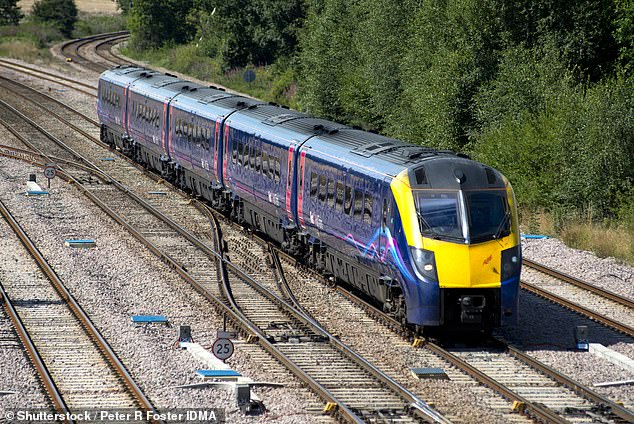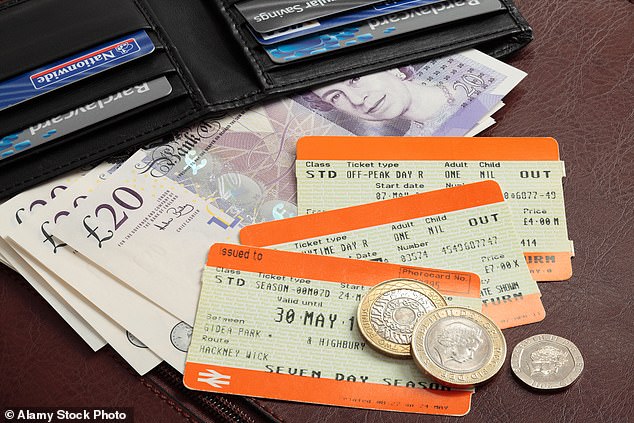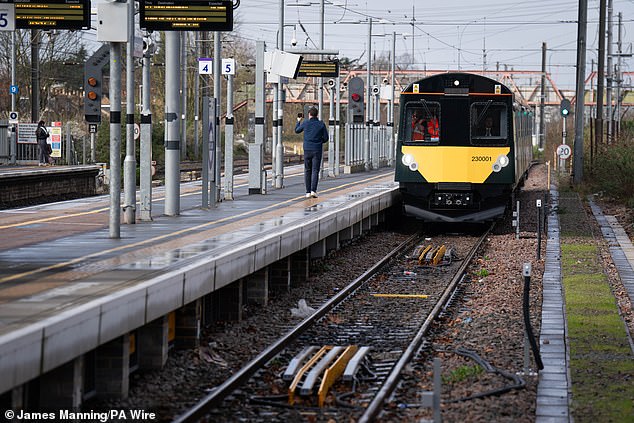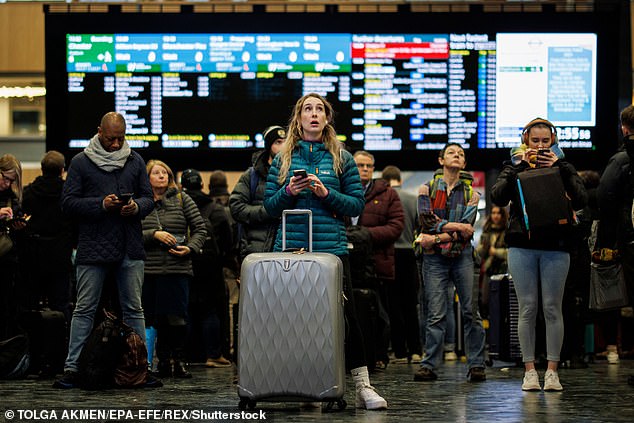A potential 5.5 per cent rise in England’s train fares next year has been described by public transport groups as ‘outrageous’.
July’s Retail Prices Index (RPI) measure of inflation – which is often used to determine increases in the cost of train travel – will be announced on Wednesday.
The Government has not confirmed how it will determine the cap in regulated fare rises for 2026, but this year’s 4.6 per cent hike was one percentage point above RPI in July 2024.
Banking group Investec has forecast this year’s July RPI figure will be 4.5 per cent, which means fares could jump by 5.5 per cent.
Bruce Williamson of pressure group Railfuture said ‘it would be outrageous’ if fares rose by that much. He added: ‘What would be the justification for jacking up fares above inflation? There isn’t any.
‘It’s ripping off the customer, driving people off the trains and on to our congested road network, which is in no one’s interest.’
Mr Williamson said that he would support the Government marking its nationalisation of train operators by freezing fares.
He continued: ‘One would hope that there would be some efficiency savings and economies of scale that you get from having a more integrated railway.
‘But I strongly suspect that if there are any savings to be had, they’d be swallowed up by the Treasury and not passed back to passengers, which I think is wrong.’

A potential 5.5 per cent rise in England’s train fares next year has been described by public transport groups as ‘outrageous’. July’s Retail Prices Index (RPI) measure of inflation – which is often used to determine increases in the cost of train travel – will be announced on Wednesday (file image)

The Government has not confirmed how it will determine the cap in regulated fare rises for 2026, but this year’s 4.6 per cent hike was one percentage point above RPI in July 2024. Banking group Investec has forecast this year’s July RPI figure will be 4.5 per cent (file image)

Bruce Williamson of pressure group Railfuture said ‘it would be outrageous’ if fares rose by that much. He added: ‘What would be the justification for jacking up fares above inflation? There isn’t any’ (file image)
Ben Plowden, chief executive of the lobby group Campaign for Better Transport, said: ‘Rising fares are not just burdening passengers, they are putting people off rail travel.
‘Our survey found that 71 per cent of people would be more likely to take the train if fares were cheaper.’
Mr Plowden added that Great British Railways – an upcoming public sector body that will oversee the UK’s train operations – ‘must take the opportunity to reform fares and make rail travel more affordable’ because ‘public support for nationalisation plummets if fares continue to rise’.
About 45 per cent of fares on the country’s railways are regulated by either the Westminster Parliament or the Scottish and Welsh governments.
They include season tickets on most commuter journeys, some off-peak return tickets on long-distance routes and flexible tickets for travel around major cities.

Ben Plowden, chief executive of the lobby group Campaign for Better Transport, said: ‘Rising fares are not just burdening passengers, they are putting people off rail travel’ (file image)
![A Department for Transport spokesman said: ‘The Transport Secretary [Heidi Alexander, pictured] has made clear her number one priority is getting the railways back to a place where people can rely on them'](https://www.americanpolibeat.com/wp-content/uploads/2025/08/Outrageous-Fury-at-threat-to-increase-rail-fares-by-55.jpg)
A Department for Transport spokesman said: ‘The Transport Secretary [Heidi Alexander, pictured] has made clear her number one priority is getting the railways back to a place where people can rely on them’
The Department for Transport (DfT) said there will be an update on changes to regulated fares later this year.
A DfT spokesman said: ‘The Transport Secretary [Heidi Alexander] has made clear her number one priority is getting the railways back to a place where people can rely on them.
‘No decisions have been made on next year’s rail fares but our aim is that prices balance affordability for both passengers and taxpayers.’












